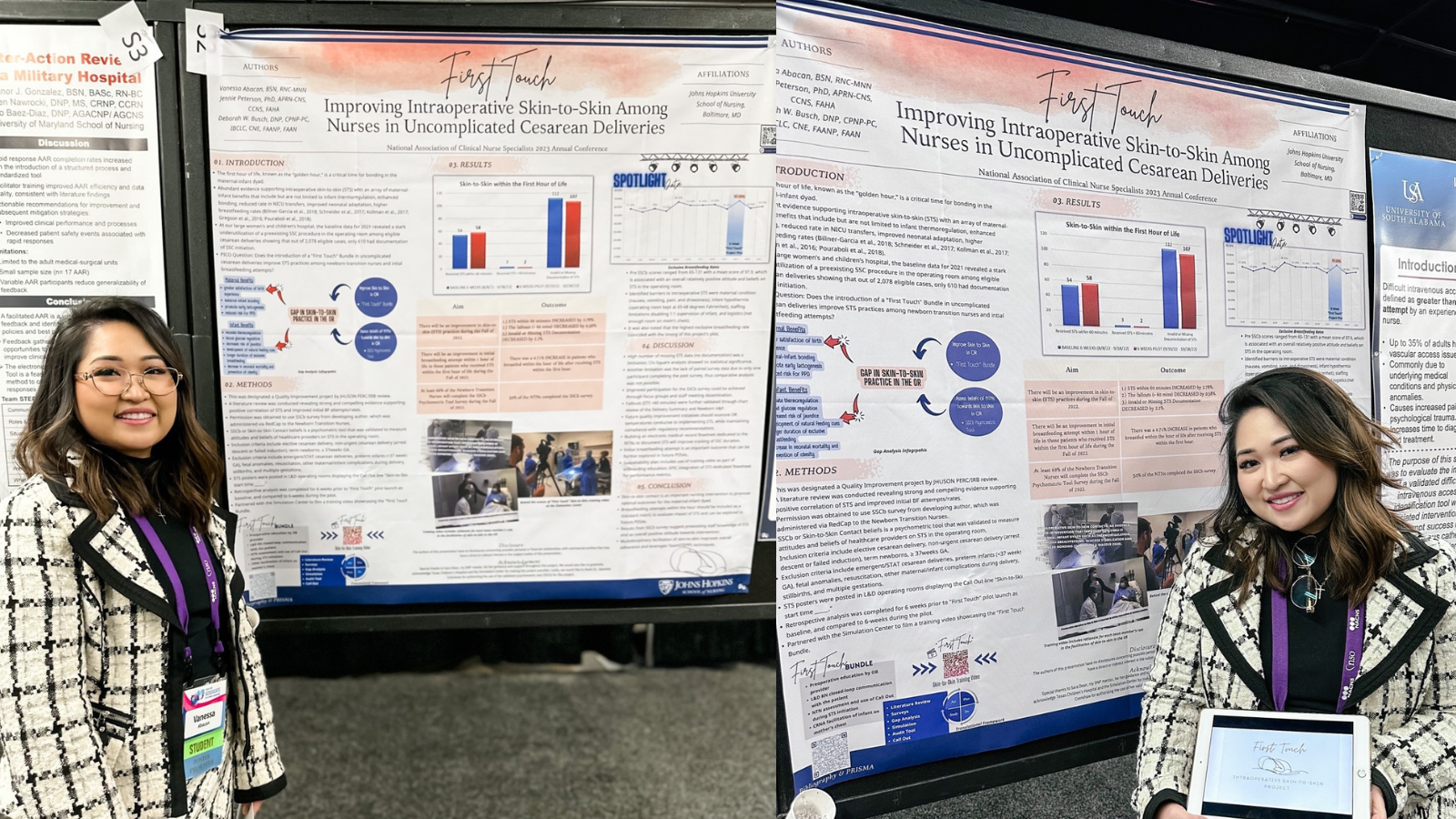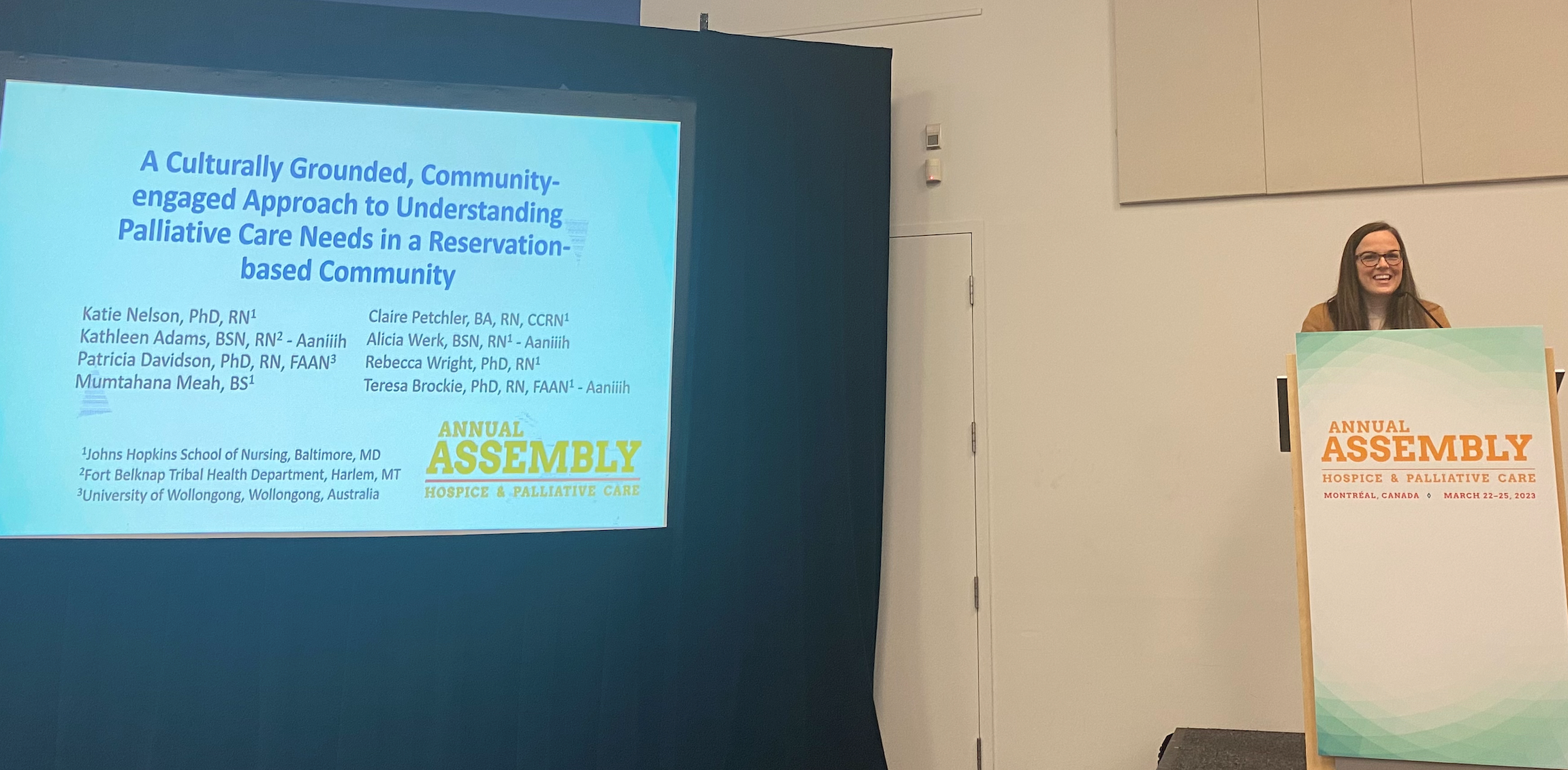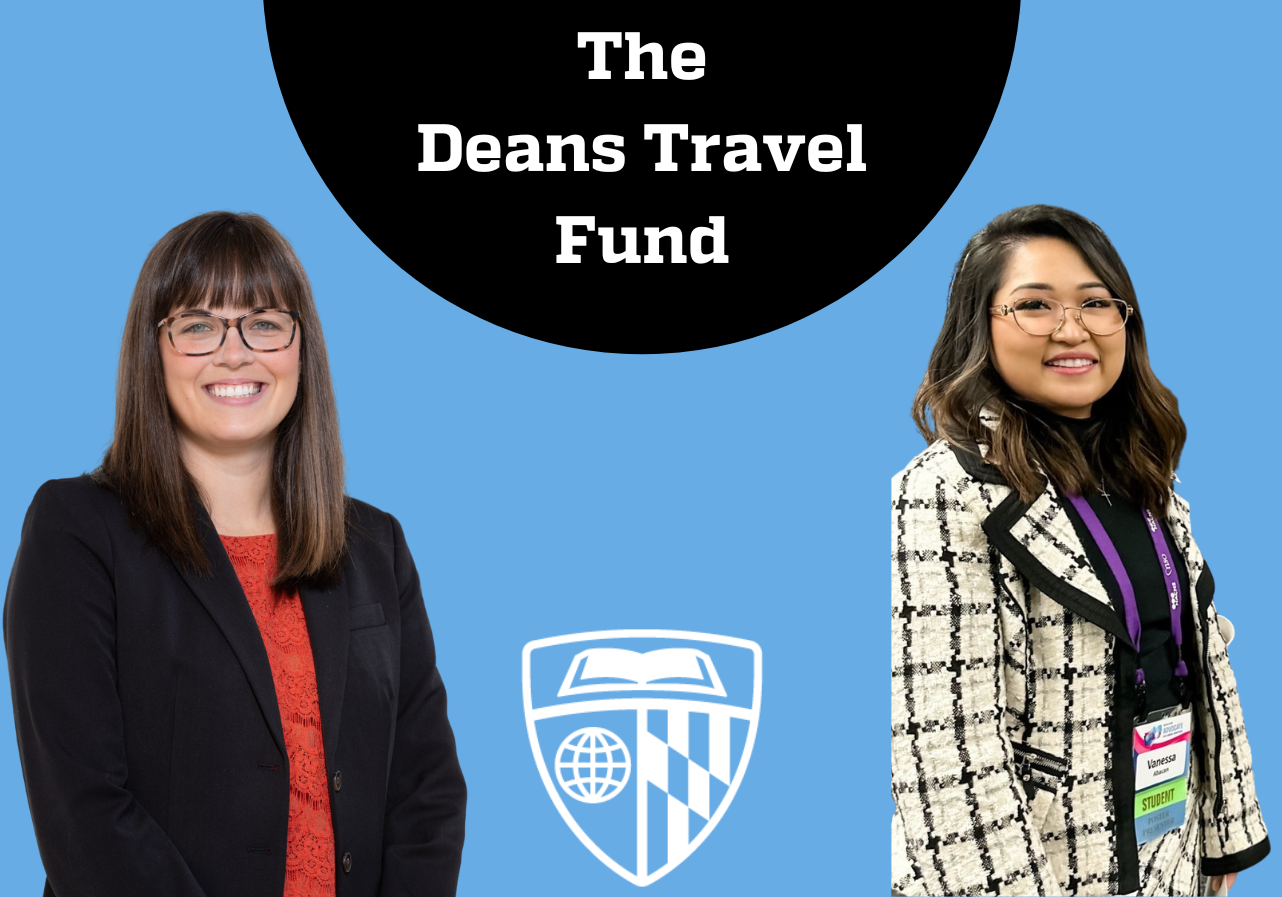Dr. Katie Nelson and Vanessa Abacan received funding from The Deans Travel to further their research. One of the requirements for receiving this funding is to put together a short blog documenting their experience after returning from travel. Katie and Vanessa have shared their stories.
Vanessa Abacan BSN, RNC-MNN

This was my first time attending a conference and presenting a poster. What an unforgettable experience. To start, I met some of my old friends at Johns Hopkins SON from my original Fall 2018 cohort. Seeing them all as full-pledged Clinical Nurse Specialists tremendously inspired me. Apart from reuniting with friends, I met Dr. Jennie Peterson for the first time in person, after knowing her for 5 years as my program advisor. It was an absolute delight getting to spend time alongside my JHU family.
The conference focused on the Clinical Nurse Specialist (CNS) role and advocating for recognition as Advanced Practice Registered Nurses (APRN). In many states, CNSs still do not have full scope of practice, and it was inspiring to hear about all the strides that people have made in their organizations to advocate for their role as CNSs, including fighting to switch their RN badges to CNS or even fighting to wear a white coat. CNSs are true experts at the bedside, in their specialties and in translating research into practice; in other words, CNSs are underappreciated APRNs who are change agents and trained to be innovators in healthcare. One of the most inspiring quotes during the opening ceremony was, “Clinical Nurse Specialists are the engineers of nursing and healthcare delivery.” This was a quote by Sean DeGarmo, PhD, RN, ACNS-BS, FNP-BC, ENP-BC who is a Director in the American Nurses Credentialing Center. I had the pleasure of meeting him during our Student Lunch with the President.
This event not only fueled my determination to graduate, but also allowed me to view the CNS role in a brand-new light, which made me even more excited to be in this role soon. Every single person I met had overwhelming passion in what they do. This conference was an amazing opportunity for me to network and meet some CNSs in Texas, including Houston! As I approach graduation, I am faced with the daunting endeavor of searching for opportunities. I was discouraged by the lack of CNS-specific roles in Houston. However, after meeting Sean DeGarmo and other CNS students and CNSs from Texas, I was relieved and reenergized. One of my friends, Elizabeth Hoxie, who graduated in Spring 2022 from the DNP Adult-Gero CNS program at JHU, also from Texas, received her notification of APRN status from TX Board of Nursing while we were at the conference!
As for my poster presentation, it was a great experience for me. Given that this was my first time presenting a poster at a conference, I embraced the nerves and let my passion in my topic do the talking. Despite this conference being predominantly adult-gero CNSs, I met a few Perinatal/Women’s Health CNSs as well, one of which was the named winner as the NACNS of the year. It was an honor to have had the opportunity to talk to her about my DNP project on intraoperative skin-to-skin in uncomplicated cesarean deliveries.
This was one of the most special experiences I have ever had in my journey as a DNP student. There were so many presentations, workshops, and speakers to choose from; I felt like a kid in a candy store trying to fit way too many into my day. My biggest complaint was that I could not be in multiple places at once!
Dr. Katie Nelson, PhD, RN

The American Academy of Hospice and Palliative Medicine (AAHPM) and the Hospice and Palliative Nurses Association (HPNA) took the Annual Assembly on the road to Montreal, Quebec this year!
Approximately 2,000 interdisciplinary clinicians and researchers convened for a jam-packed four days full of networking, learning, and ideating together. This was the first in-person meeting since COVID-19; many hugs and reminiscent tears were shared.
This was my third time attending the Assembly, but the first as Dr. Katie Nelson (ahh!), and I had the great privilege of presenting a sliver of my dissertation work. The talk entitled: “A Culturally Grounded, Community-engaged Approach to Understanding Palliative Care Needs in a Reservation-based Community” also won a Podium Abstract Award from AAHPM. Receiving this national recognition amplifies the importance of the work our team is doing in Fort Belknap, Montana.
Making Indigenous Peoples Visible
To be frank, I was disappointed to see very few oral and poster presentations on work with Indigenous Peoples—yet another example of their invisibility in research, practice, and higher education spaces.
In my presentation, I described the application of Indigenous methodologies within hospice and palliative care research. I gathered this concept was brand new to most attendees based on the many puzzled looks staring back at me. Paired with questions I received, like “Many of my patients are Native American. How should I talk to them?”—I realized just how far we, as a field, have yet to go in terms of achieving equitable hospice and palliative care access and provision.
What Gives Me Hope
There was a whiteboard panel set up at the meeting, that read “Write what gives you hope!” Many penned about their staff and patients, others on how meaningful it was to be back in-person since the pandemic. Meanwhile, I had to think on it for a few days
It’s not lost on me—the privilege that comes with being able to attend and present at an international conference. As a nurse scientist attempting to be a critical ally to Indigenous Peoples, I will continue to take every opportunity to use my work/platforms to amplify Indigenous Peoples’ culture, ways of being, knowledge systems, and methodologies. I wholeheartedly believe that we (non-Indigenous Peoples) have a heck of a lot to learn.
And, as I ruminated on these feelings, I realized that what gives me hope is the opportunity to do just that…
